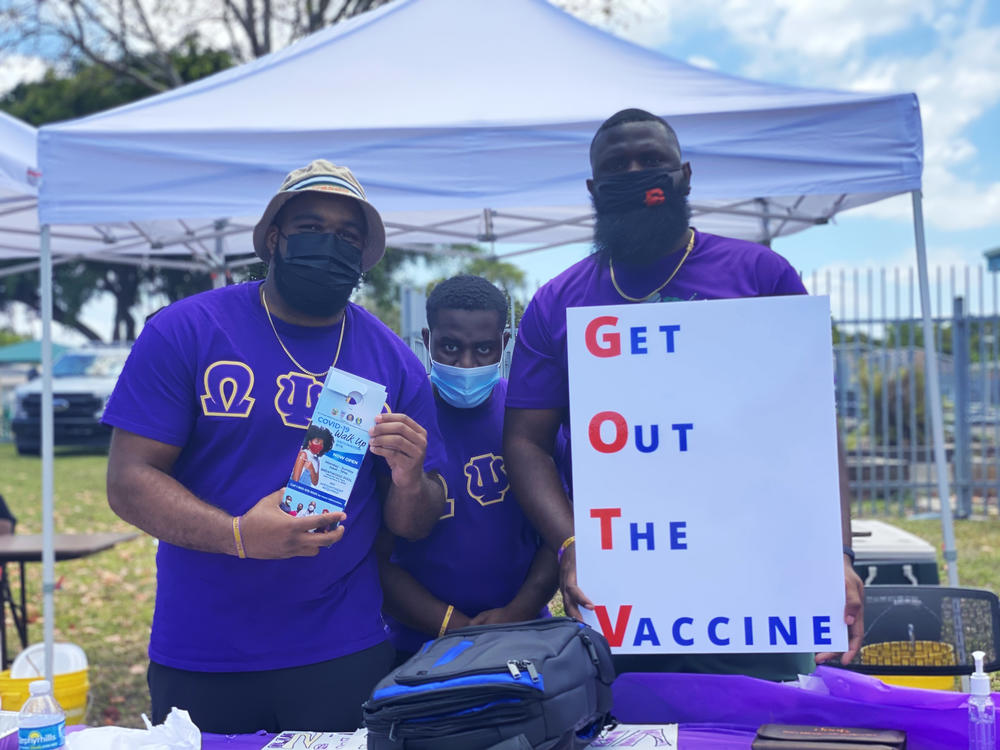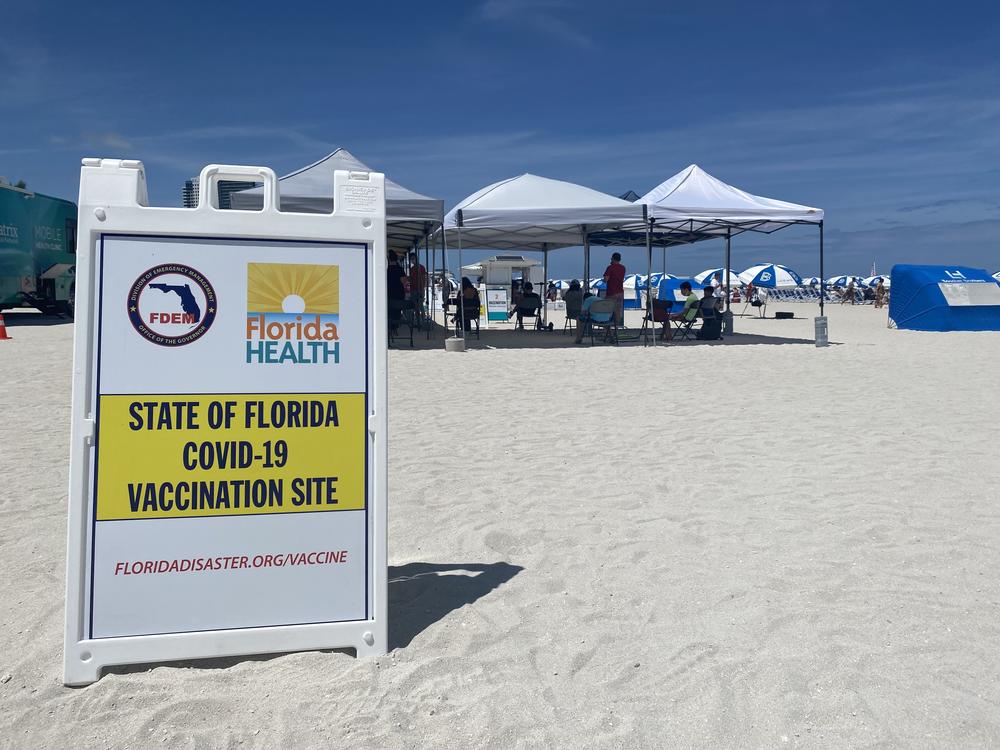Section Branding
Header Content
Miami Tries To Make Vaccinations Easy: 'Wherever People Are That's Where We Will Be'
Primary Content
On a recent Monday morning, Miami International Airport looked hectic as people rushed to their flights. You could hear baggage claim announcements, passengers frantically asking about the zone for their international flights and personnel directing them. But airport staff and some travelers were stepping away from the chaos to get a COVID-19 vaccine.
Nearby, Miami-Dade County Mayor Daniella Levine Cava spoke during a press conference about offering vaccines here to make it easy.
"It's pop up, pop up — wherever people are that's where we will be to make sure that no one has an excuse to not take the shot," she said.
In most of the U.S., the initial scramble to get a coronavirus vaccine is over, so the campaign to convince or reach those who haven't gotten shots yet continues to ramp up. People who study infectious disease worry that the numbers for first doses are slowing down, so efforts are underway to persuade more people to roll up their sleeves in Miami-Dade, the state's largest county.
Outside the airport, near lines of parked yellow cabs, you could hear Haitian Creole spoken and dominoes being slammed onto a table.
One of the domino players was Tony Brutus, who was finally able to play with other drivers because he had gotten his first Pfizer dose at this airport parking lot. Brutus wasn't allowed to play till he got inoculated.
He had tried before to get a shot but one site ran out of vaccines and another had already closed.
"One customer from New York told me that last week — every taxi driver in New York is taking the vaccine already," Brutus said. "So that means we were behind in Miami, in Florida."
Florida's vaccination numbers have been dropping since April. They're low for younger adults, who now make up most of COVID-19 patients at hospitals.
People who work multiple jobs or who don't earn much struggle to get to vaccination sites, said Cindy Prins, an epidemiologist at the University of Florida.
"Now it really is about understanding the nuances of our populations, of their needs, of their motivating factors and reaching them where they are, bringing it to them," Prins said.
Angel Sánchez, a busy single dad who works construction, didn't have a chance to look for a vaccine site.
"I had the luck to come to the beach and get vaccinated here," he said as he sat down for 15 minutes after getting his Johnson & Johnson shot.
On this trip to Miami Beach with his two sons, the city was offering shots right on the sand.
"I'm really happy I got one. My sons are with me so I took advantage of it and I feel good because of this," Sánchez said.
Vaccination rates for Hispanic Floridians are far behind those for white residents, while even further behind is the vaccination rate for Black people. Of the more than 9.4 million people vaccinated in Florida, about 7% are Black, while two-thirds are White.
In Miami Gardens, Florida's largest majority Black city, members of Black fraternities and sororities, called the Divine Nine, were recruiting people with food and "get vaccinated" posters.
People were dancing near a DJ who played music and urged people to tell others to come out and get their COVID-19 vaccine. The site has a Black doctor and Black nurses to help people feel comfortable.
Florida state Rep. Christopher Benjamin, whose district includes Miami Gardens, was wearing his purple Omega Psi Phi shirt.
"We want to dispel myths about the vaccine," Benjamin said. "We want to encourage folks in the Black community to come out and get vaccinated because we know that there's some vaccine hesitancy in our community. So the leaders of our community are out here to say it's OK, it's safe."
Now that 12- to 15-year-olds are eligible for the Pfizer-BioNTech vaccines, epidemiologists say, that will help boost Florida's rates. Miami-Dade County is offering shots at some high schools and the University of Miami has a mobile pediatric unit heading to churches and underserved neighborhoods so that parents don't have to go far.
Copyright 2021 WLRN 91.3 FM. To see more, visit WLRN 91.3 FM.


